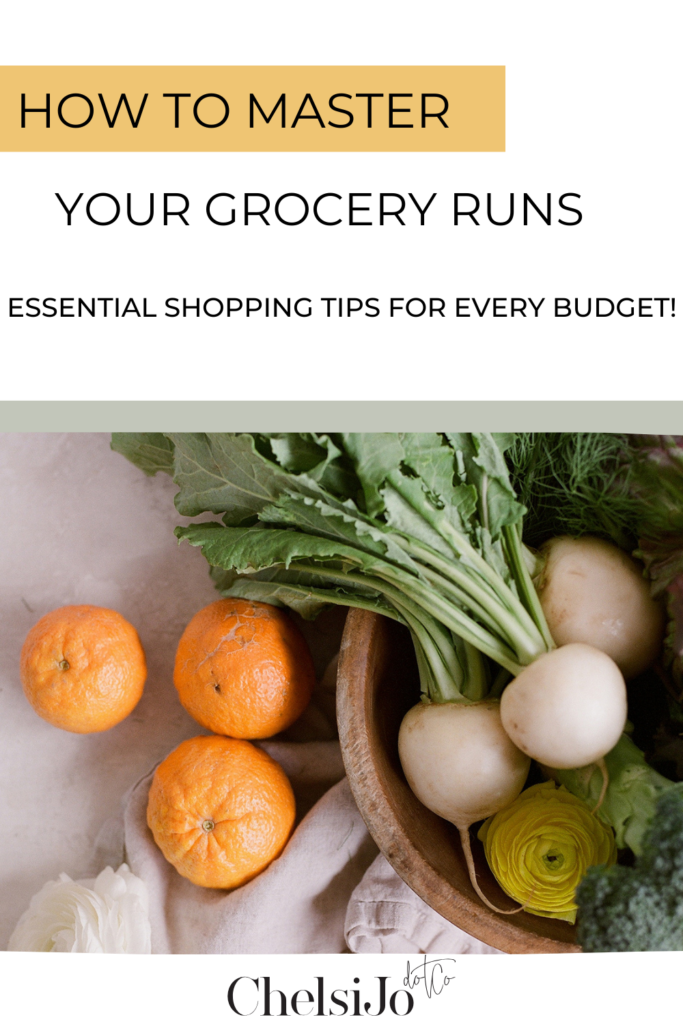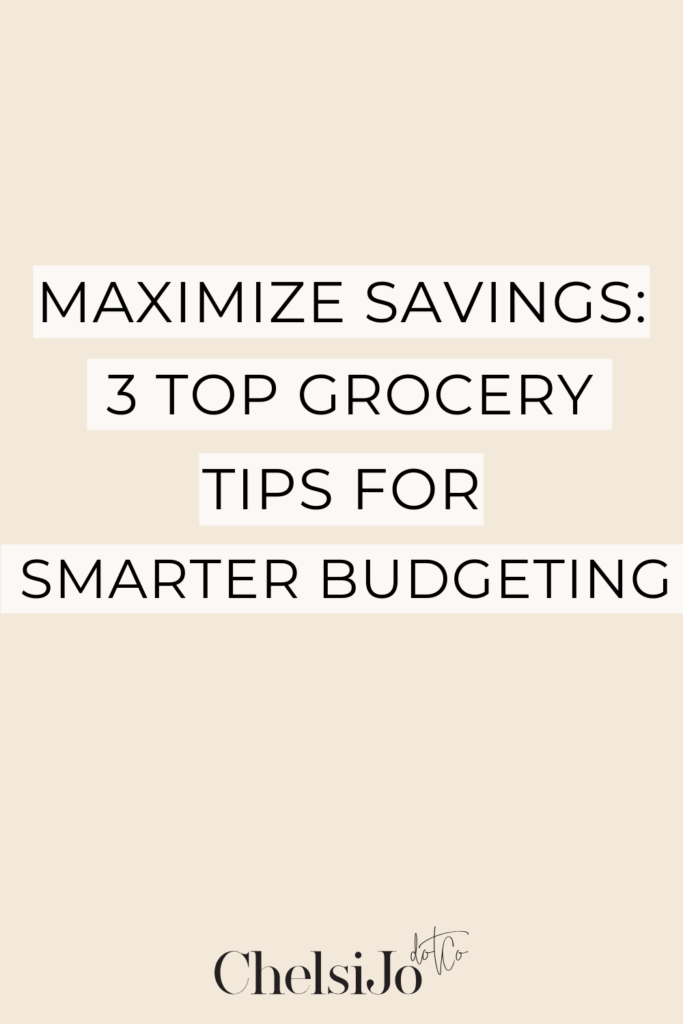I have a deep appreciation for a solid budgeting system. My fondness for it isn’t rooted in a love for finances, but rather in my passion for systems. Together with my husband, we devised our budgeting system years ago. Since then, I’ve had the opportunity to test it out with numerous people. I’ve experimented with various budgeting systems through different phases of my life—being single, married, and now, as a parent. What I’ve learned through all this is the significant control we have over much of our spending. A prime example is our grocery bill, which includes everything from dining out to the choices we make in the grocery store aisles.
You can truly save a substantial amount of money by implementing just these strategies. I’ve outlined three incredibly effective ways to reduce your grocery bill, which, in turn, can significantly influence your overall budget. I’ll present them in order, but feel free to choose any that resonate with you. Each method has its merits. However, if you’re looking for the quickest way to see results, I recommend starting with the first strategy.
So, don’t just skim the surface; I encourage you to delve deeply into each of the strategies I’m sharing. Each step has multiple layers and aspects, offering you the flexibility to fully embrace and implement them or to experiment a bit with each. There’s considerable depth to the three different methods we’ll discuss for reducing your grocery expenses. You can adapt these strategies in a way that best fits your lifestyle and budgeting goals.
Listen Below For The Entire Episode On The Systemize Your Life Podcast
Mastering Weekly Planning: Essential Grocery Shopping Tips To Reduce Waste And Save Money
So, the first tip is all about planning—yes, lots of planning! You probably anticipated that I’d emphasize this, but let me explain exactly what I mean. Before you even think about heading to the grocery store or ordering online, there are a few key things I recommend you plan out. Whether you shop in person or online, it’s not just about planning your meals for the week—though that is crucial. I want to take it a step further: I encourage you to get really adept at planning your entire week in general. This broader approach to planning can streamline your life and significantly cut down on unnecessary spending.
If you’re not already using my time management system—the five block method or focusing on fundamental needs—that’s an excellent starting point. Here’s why we begin there, even though it may seem like we’re just discussing a grocery list: understanding what your week entails is crucial. You might plan out five meals for Monday through Friday, but if those meals don’t align with your actual schedule and the events on your calendar, you won’t end up cooking them. As a result, most of that food will go to waste. It might end up thrown away or left to get freezer burn in the freezer. Not only does this mean spending unnecessarily on groceries, but it also leads to additional spending on eating out.
Syncing Meal Planning With Weekly Activities For Grocery Shopping Success
It’s a whole scenario you can completely avoid just by effectively planning your week. Knowing what’s on your Google Calendar is crucial. What time will you start your PM block so you can begin your routine stacks, one of which is your dinner routine? Obviously, we also need to discuss meal planning in detail, as these two elements—planning your week and planning your meals—go hand in hand. If you want to reduce your grocery list effectively, you need to meticulously plan out your meals. They should align with your weekly activities to truly set yourself up for success.
And I will tell you, I have an incredible system that you can learn directly from the blog. You can check out my menu board meal planning system here. Plus, you’ll find meal planning cards available for download. This system is really cool and effective. So, that is the menu board meal planning system that I highly encourage you to use.
Transform Your Budget With The Essential Grocery Shopping Strategy
Okay, and the last aspect I want to discuss within this first substantial strategy is to always write a grocery list.
You might have your meals planned out and be ready to head to the grocery store or log into an online shopping session, but without a list, you’re setting yourself up for potential mishaps. Even if you’re shopping online, having a list is crucial. I appreciate online stores that allow you to save your shopping lists, enabling you to easily rebuy items from previous lists and simply add a few extra things as needed. Regardless, you still need to have a list of what you need to complete the meals you’ve planned for the week.
Maximizing Savings With Bulk Buying: Strategic Grocery Shopping Tips For Every Family Size
Here’s the second way to consistently reduce your grocery bill: buy your staples in bulk. Of course, you’re not going to purchase bulk items every single week. I highly recommend making bulk purchases once or twice a month, depending on your proximity to Costco or any other location where you can buy items in large quantities. This strategy can significantly lower your overall spending by leveraging the cost benefits of bulk buying.
As I’m currently learning, buying in bulk genuinely saves money. However, it’s essential to know how to handle bulk foods, especially if you don’t have a large family. For those with big families, say five or more kids, buying in bulk is probably a necessity just to meet your daily needs. But for smaller families like mine, with just two children, it’s crucial to understand how to properly preserve these items. If not stored correctly, bulk purchases can spoil before they are used. I’m not executing this perfectly yet and am still in the process of refining my approach. But I have already noticed a significant reduction in our grocery bills. This method is something I’ve aspired to implement for a long time, and I’m making progress gradually.
“Here’s the second way to consistently reduce your grocery bill: buy your staples in bulk.”
Budgeting For Bulk: How Strategic Purchases Can Streamline Your Monthly Grocery Expenses
We allocate funds specifically to ensure we have a $200-$250 budget for bulk purchases like those at Costco, and we have a separate budget for meat. I buy our meat in bulk from farmers who are part of an online cooperative. These animals have spent nearly their entire lives grazing on grass under the sun—obviously except on rainy days. The sourcing of our meat is very important to me. I purchase it in large quantities, receiving a huge box that costs a couple of hundred dollars, but it provides all the meat we need for the entire month. This approach not only supports sustainable farming practices but also helps in managing our monthly food budget more effectively.
We analyzed our spending and broke down the cost of buying bulk meat into four parts to compare it to the expense of purchasing meat weekly. The result was clear: buying in bulk proved substantially cheaper. This cost-effectiveness extends to nearly everything else we buy. The real challenge lies in learning how to properly handle and store these bulk items to maximize their longevity and quality.
Smart Grocery Shopping Tips For Essential Household Staples
This conversation about purchasing your staples in bulk goes beyond just accumulating snacks and other non-essentials—though that’s perfectly acceptable as well. My advice is to concentrate on the essentials, the fundamental items that your family consistently uses. Consider the primary grains, proteins, and fruits and vegetables that are regulars in your meals. These are the items I recommend buying in bulk. By focusing on these staples, you’re not just saving money; you’re also ensuring your kitchen is well-supplied, effectively and efficiently supporting your family’s dietary needs.
I want you to realize that no matter your current situation, you don’t need a deep freezer or a large storage setup to begin effectively managing your groceries. The key takeaway here, which is crucial to understand, is that you can batch prepare food for up to two weeks and keep it fresh in your standard refrigerator. Handling bulk purchases, such as a large bag of carrots, involves learning different techniques. How do you maintain the freshness of such a significant amount? Rather than buying smaller, more expensive packages of baby carrots, I’ve switched to purchasing carrots in bulk and developing strategies to keep them fresh longer. This is a valuable skill I’m developing: making bulk purchases work by maximizing the longevity of the produce.
Practical Tips For Extending Shelf Life By Freezing Foods
Carrots are a staple in our household, not just for snacking—though we absolutely love dipping them in peanut butter, even more than apples. I also use them extensively in my cooking. Whether it’s finely chopped carrots for soups, which is made easier if you have a food processor or a high-quality blender, or mixed into ground beef, they are incredibly versatile. I also add carrots to my bone broth, soups, and stews. Beyond that, I shred them for coleslaw or make a fresh carrot salad. This versatility is why I find them so invaluable, and it exemplifies the benefits of incorporating such staples into a variety of dishes.
But I started out just like I encourage you to start: by Googling simple questions like, “Can I freeze cheese?” The answer is yes, you absolutely can. Buying cheese in bulk and freezing it is just one of many practical approaches. There are numerous foods that fare well in the freezer, which can significantly extend their shelf life. Additionally, there are fantastic tips available online on how to keep your berries and greens super fresh in your fridge for up to two weeks without them spoiling. These little pieces of knowledge can make a big difference in managing your groceries more efficiently.
Challenge yourself to start small. You don’t have to take on everything at once. Just implementing a little bit of what we’ve discussed can gradually change the way you approach your grocery shopping. This incremental adjustment can lead to significant savings and efficiency over time.
Transform Your Spending Habits: The Power Of A ‘Do Not Buy’ List
Okay, let’s dive into the last but certainly not least way that you can save money on your groceries each week. This method is my absolute favorite and might surprise you with how effective it is—it’s been a real game-changer for me. I want you to create your ‘do not buy’ list. Yes, a definitive, no-compromise list of items you will not purchase. Everyone’s list will be unique. The idea struck me from observing what others buy when I’m at the grocery store; I find it particularly intriguing at places like Costco and sometimes Target. There’s something about seeing the vast array of items that flow in and out of Costco that really catches my attention and got me thinking about the concept of consciously deciding not to purchase certain things.
Seeing the items that people purchase at stores like Costco really got me thinking—they don’t actually need to buy much of that stuff. It’s fascinating to consider how much money could be saved by simply not purchasing certain items. So, I’ve developed my own “do not buy” list, which I adhere to strictly. I’m excited to share it with you. This list is my firm commitment to avoiding specific purchases, and I’m continuously adding to it, which I absolutely love doing. It’s become a crucial part of how I manage spending and save money effectively.
Streamlining Your Routine For Savings And Sustainability By NOT Buying
Here’s an item I’ve been contemplating adding to my “do not buy” list but haven’t quite committed to yet: bread. Currently, I’m not in a position to make my own bread at home. However, the essence of what your “do not buy” list should include revolves around things that you can either reuse at home or make yourself. So, consider what items you could potentially create from scratch or simply what items you genuinely do not need. For example, if there’s something your family can comfortably live without, that’s precisely what the list is for—drawing a firm line on unnecessary purchases. This approach helps streamline your lifestyle and reduce waste and expenses.
You can review my list and consider for yourself: Do we really need this? Can we reuse something we already have? Or is it something I can make at home? Here are the first several items: plates, forks, paper towels, napkins, and cleaning wipes. These are five things that you should never— and I mean never—place in your shopping cart again. Specifically, disposable items like paper plates and plastic cutlery—unless you’re hosting a massive party, these shouldn’t be part of your regular shopping list. As for paper towels, the answer is a resolute no. Opt for reusable linens instead. We use cloth napkins and towels, which are not only more sustainable but also more economical in the long run.
Ditching Disposable Items In Grocery Shopping
If there’s a major spill, I have a dedicated bucket of “spill towels” stored in the pantry. These are towels specifically for cleaning up messes, which we wash and reuse. When I first got a dog, I bought a single pack of paper towels because, honestly, dealing with pet accidents like poop and pee required something disposable. You might think, “But wait, there are so many messes at my house; I need paper towels.” I have plenty of messes at my house, too, but pet accidents were a unique challenge. That pack of paper towels has lasted us a surprisingly long time because we’ve been very judicious in using them. That’s how we’ve made them stretch.
For napkins, we’ve switched entirely to cloth, similar to how we handle cleaning spills—instead of wet wipes or cleaning wipes, I use a cloth with my all-purpose spray. Here’s another item: Ziploc bags are a definite no for me. I buy one variety pack annually, and it lasts the entire year because I’ve drastically reduced my reliance on them. While it’s handy to have them around, I’ve been focusing on using my silicone bags, glass containers, or any reusable storage containers I have. This shift has really cut down on my usage.
When I do buy Ziploc bags, I find myself depending on them too much, which leads to quickly running out. Moreover, the amount of plastic waste disturbs me—not just because of the environmental impact but also due to the potential chemical leaching into our food and the unpleasant taste it can leave. I understand they are convenient, but committing to not buying them has significantly decreased both my grocery bill and our household waste. This commitment to reducing plastic use is a key part of how I manage our groceries and impacts our overall budget and environmental footprint.
Practical Choices For A Smarter Grocery List
Here are a few more items on my “do not buy” list. Soda is a definite “no” — my family doesn’t need it, and it’s just not part of our diet. Another item I’ve decided to stop purchasing is any type of store-bought breakfast muffin. I’ve taken to making them at home, and I’m really pleased with this change.
As for foil, I also choose not to buy it. I’m not saying you shouldn’t, but personally, I haven’t needed to. I’ve had one roll that has lasted me an incredibly long time. Instead, I’ve started using reusable silicone tray liners for the oven, which are absolutely incredible. For anything that I might have previously covered with foil, I now use a container that comes with its own lid. This not only reduces waste but also keeps my kitchen essentials minimal and more environmentally friendly.
Smart Grocery Shopping: Avoiding Costly Convenience Items And Unnecessary Treats
Let’s talk about a few food items before we wrap up, specifically things I recommend not adding to your shopping cart each week. First, pre-cut fruit. While convenient, it’s generally more expensive and tends to spoil quicker than whole fruit. Additionally, pre-cut fruit has a higher risk of contamination and bacterial growth. For these reasons, it’s better to skip it.
Next, pre-cut vegetables. I understand the appeal—for example, pre-cut broccoli can save a lot of prep time. However, it’s important to be selective about which vegetables you buy pre-cut. With items like broccoli, I often find myself switching back and forth; one week I’ll buy whole heads of broccoli, the next week I might opt for pre-cut if it suits my schedule better. It’s about finding a balance that works for you.
Finally, treats. I make it a point to carefully consider how many treat items we already have at home before adding more to the cart. If we already have four different types of treats for the week, we really don’t need to buy more. Being mindful and constantly reviewing what’s necessary against what’s on my ‘do not buy’ list helps keep our grocery shopping in check and reduces unnecessary spending.
Wrapping Up The Conversation
I sincerely hope these three strategies help you save money on your groceries every single week. There are so many essential areas where our money needs to go, and with just a bit of time and intention, you can make your funds stretch further. This focus on mindful shopping, choosing the right items to buy in bulk, and managing what you bring into your home can significantly impact your budget positively.
As you start this journey, I’m excited to hear your experiences and insights. Share them within our vibrant Facebook community or come over and visit me on Instagram. And remember that we would LOVE to see you inside of Systemize Your Life as a VIP student!
Until next time….


Frequently Asked Questions
I want to dig into some more meal planning tips! Where else can I look?
Check out some other similar blog posts that can be helpful like: 3 Tips To Put Healthy Meals On The Table For Your Family As Busy Moms And Quick Guide to Meal Planning and Prep.


